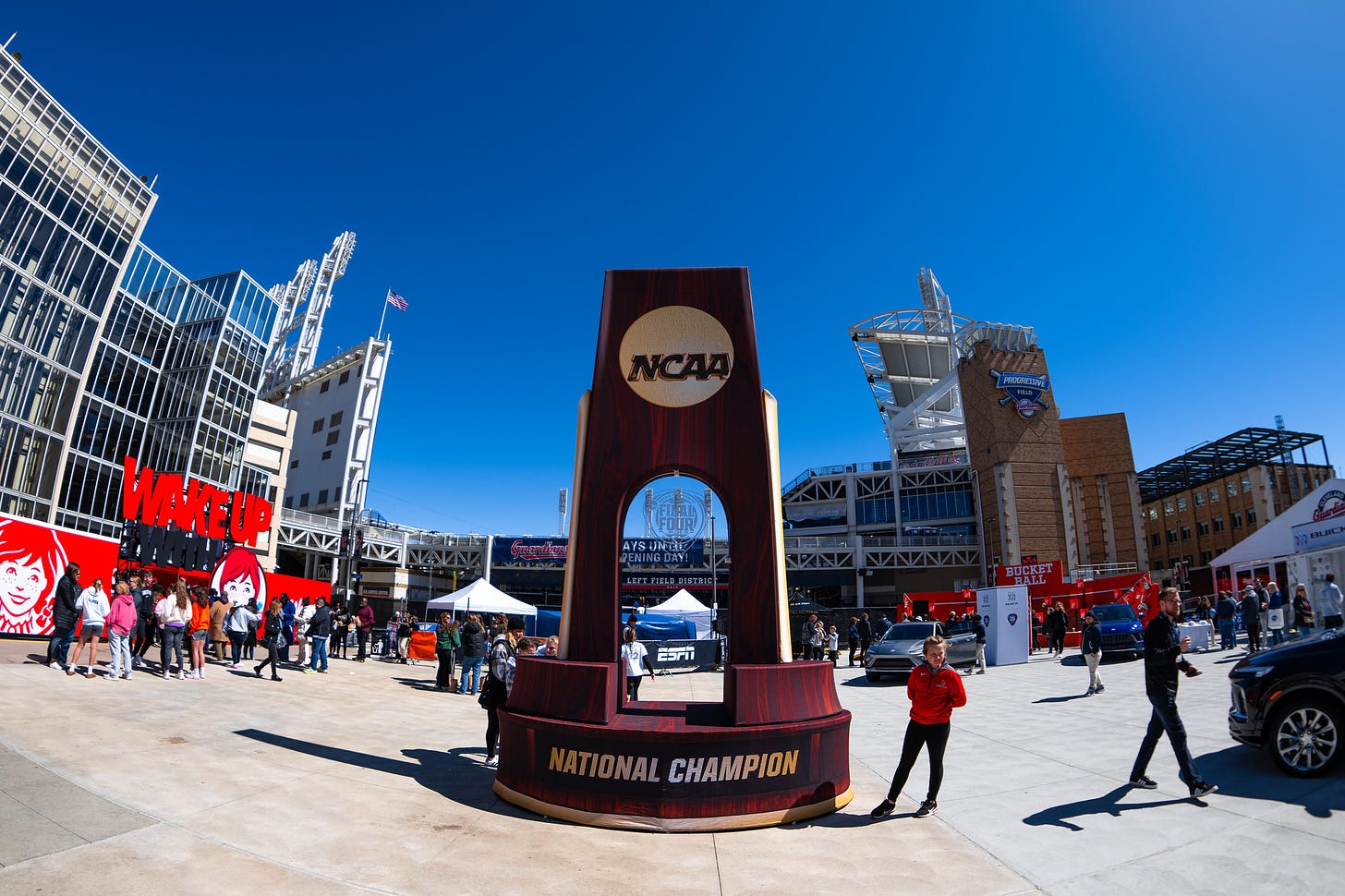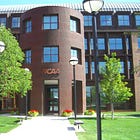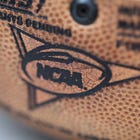Judge Wilken puts House v. NCAA settlement on hold
Is the landmark court case up for debate again?

If you thought we were done with NIL legislation now that the season is underway, you’re wrong. We’re right back in the thick of it.
On Thursday, September 5, the lead councils for both the plaintiffs and NCAA in the landmark House v. NCAA court case met with presiding judge Claudia Wilken about their agreed upon settlement. For many, it was expected that Wilken would read through the terms of the settlement, ask a few questions, and grant preliminary approval for the sides to start proceeding with the settlement terms. That didn’t happen.
Instead, Judge Wilken declined to grant preliminary approval and instead sent both parties back to the drawing board.
What’s at stake here?
For those new to SID Sports, we’ve covered the House v. NCAA saga thoroughly as its unfolded. You can read about it in-depth at the articles below, but I’ll summarize what the settlement terms are here:
Additional Reading:
A $2.7 billion settlement to athletes that were not paid NIL amounts relating to televised games over the past four years, paid out over a 10-year period
22 percent revenue sharing between the athletic department and college athletes
Eliminating scholarship caps across all sports
This, obviously, drastically alters the shape of college athletics.
As I noted back in May, though, there is some major silver linings for the NCAA. A ton of talk about the House case is that it will kill the NCAA. I don’t think that’s true.
“While I may have floated [the idea of House v. NCAA killing the NCAA] in my earlier piece, the House settlement actually may save the NCAA.
Allow me to elaborate.
The settlement binds the autonomous five conferences - also known as the Power Five, and including the PAC-12 at the time of the lawsuit before any realignment - to the NCAA for at least 10 years.” - May 30, 2024 in NCAA enters into new era with House settlement
This is a massive case for both sides. It’s the strongest piece of the student-athlete labor drive, but also could hold the keys to the NCAA staying in power.
What’s the problem here?
According to The Athletic’s Justin Williams, Judge Wilken’s doubts rest on a specific clause in the settlement. The clause in question is one that limits outside pay to athletes, specifically from boosters and NIL collectives.
If that sounds like an NCAA-friendly clause to you, that’s because it is. Rakesh Kilaru, one of the lawyers representing the NCAA, told Judge Wilken during the two-hour hearing that clause is “a central part” of the settlement, according to Yahoo! Sports’s Ross Dellenger.
ESPN’s Dan Murphy reported that Judge Wilken’s main concern with the clause was that it requires any money going to athletes to be for a “valid business purpose.” While that seems like a common-sense thing to add, especially from the NCAA’s anti-bagman perspective, most of the concerns came from a lack of guidance on how the clause would be enforced.
What qualifies as a “valid business purpose?” Who decides that? What’s the process for enforcing it? All these questions were apparently unanswered in the text of the settlement. And those are fair questions to ask.
One of the main issues that led to this is a lack of clarity on how enforcement works and how NIL even works. There is no national legislation or guidance on NIL, only the 2021 Supreme Court ruling in Alston v. NCAA. But Alston doesn’t even look at NIL. Instead, it says that colleges cannot put a cap on education benefits that is lower than the cap on athletic benefits, which is $5,890.
Instead, NIL is regulated on a state-by-state basis. Each and every state in the nation has different guiding principles and different allowances for NIL. The NCAA has refused to get in the middle of it, essentially leaving decisions up to various legislative processes. With Congress unable to get a bill past Senate or House committees, that means that there are 50 different laws with different rules and different enforcements. The NCAA has no teeth to enforce it on their own.
It’s clear that Judge Wilken sees those same issues showing in the proposed settlement’s language. At one point in the hearing, Judge Wilken stated that the NCAA’s ban on “pay-for-play” was “not going to be there anymore, right?” Kilaru was understandably confused and stated that the ban would still be in place through the clause in question. Judge Wilken just shook her head and said that both sides need to work to clear this up.
For the judge presiding over the settlement to be confused by its terms doesn’t bode well for the settlement’s ability to clean up some of the myraid of convoluted policies contributing to the mess of current NIL.
What’s next?
The immediate next step is for both sides to get back to the negotiating table and work to hammer out a better and more definitive clause about booster regulation. But that’s easier said than done.
Lead council for the plaintiffs, Jeffrey Kessler, immediately put the ball in the NCAA’s court in a statement to ESPN. Kessler proclaimed “We are perfectly fine with those changes. It’s now up to the NCAA. Hopefully, they’ll agree to them.”
Kessler also added, “if the deal falls apart, we go back to trial.”
On the NCAA’s side, Kilaru was also strong in his messaging, stating “Without [the clause on NIL collective restrictions], I’m not sure there will be a settlement.”
Despite both lead councils posturing for a battle and refusing to give in on this one clause in a massive settlement, it appears that behind the scenes, both sides are optimistic a settlement will be reached.
A letter from NCAA President Charlie Baker acquired by The Associated Press made note that questions like Judge Wilken’s “are not uncommon in the context of class-action settlements.”
He went on to say, “last night’s hearing did not go as [the NCAA] hoped. The court posed worthwhile questions that the NCAA began workign through immediately last night with our partners in the conferences.”
The two sides have until September 26 - the next scheduled hearing in front of Wilken - to fix the settlement. At that point, either Wilken will grant preliminary approval and start the process of notifying the class and hearing any objections, or the case will move towards trial. It was originally scheduled to be heard in court in January 2025, but I think that timeline is going to be changed if the case heads to court.
There are a plethora of objections against the settlement and the three cases - House, Hubbard, and Carter - that are encompassed in it that will need to be waded through before any settlement can be officially approved. Namely the claim from the plaintiffs in the simliar Fontenot v. NCAA antitrust case that their class is not represented in the House settlement and a recent challenge from the National College Players Association, a prominent student-athlete advocacy group.
There’s still a lot to work on here, but we can at least circle the date September 26 for the next installment of the House v. NCAA saga.
What I’m Reading:
Three-Point Stance by Tyler Schuster: Three-Point Stance is your favorite independent college football newsletter. Come for in-depth analysis and bold commentary, stay for the jokes and memes. An idea hatched after years of 12-hour days glued to the couch, Tyler Schuster puts his passion for the sport on full display, delivering big-picture ideas, weekly previews and gambling nuggets directly to your inbox.
An idea hatched after years of 12-hour days glued to the couch, Tyler Schuster puts his passion for the sport on full display, delivering big-picture ideas, weekly previews and gambling nuggets directly to your inbox.
House Blocking Analysis by Matt Wilson: They say games are won and lost in the trenches. Matt's going to break down exactly how it's done through great film breakdowns and write ups. I used to write with Matt for a Cleveland Browns site, so I know personally that he's going to churn out quality content you won't want to miss!
Split Zone Duo by Alex Kirshner, Steven Godfrey, and Richard Johnson: You can't beat Alex, Richard and Godfrey. They're on the front lines breaking news and creating the best content in the game. I 100 percent recommend SZD for anyone into college football and Steven Godfrey hating your team. They’re mostly a podcast publication, but sometimes being able to listen to three well-informed guys talking about college football is what you need in your life.
Have any questions, ideas, article pitches, or information? With the new Substack features, you can directly message me! Hit the button below to send me a message, or reach out via email to sidsports23@gmail.com, or find us on your favorite social media platform like Facebook, Instagram, Twitter, Substack Notes and Bluesky.







